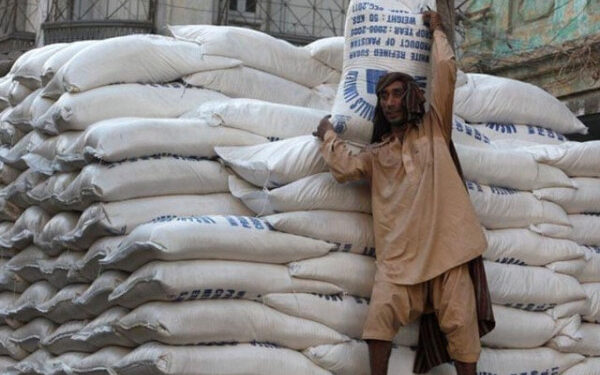ISLAMABAD – In a significant move aimed at stabilizing domestic sugar prices and ensuring market availability, the federal cabinet of Pakistan has formally approved the import of 500,000 tons of sugar through government channels. The decision, announced by the Ministry of National Food Security and Research, marks a proactive measure by the government to control inflationary pressures and prevent future shortages of this essential commodity.
The Ministry confirmed that all arrangements have been finalized for the sugar import, and implementation is set to begin immediately. This development comes amid growing public concern over the rising cost of sugar in local markets and the potential threat of supply shortages.
Strategic Import of Sugar Through Government Channels
Unlike previous years where sugar imports were largely handled through private entities, the current administration has decided to conduct the import exclusively through the public sector. According to a statement from the Ministry of Food Security, this approach is intended to ensure greater transparency, efficiency, and oversight in the procurement process.
By leveraging government channels, authorities aim to prevent price manipulation, hoarding, and the creation of artificial shortages—issues that have historically plagued Pakistan’s sugar sector.
“This method represents a clear improvement over the flawed policies of previous governments,” the Ministry noted. “In the past, the private sector often created artificial shortages to exploit market prices, while subsidies from the national treasury were misused.”
Immediate Implementation to Prevent Sugar Crisis
The Ministry emphasized that the sugar import plan will be implemented without delay, with the aim of normalizing the supply-demand ratio in the market. By acting swiftly, the government hopes to curb the upward trend in retail sugar prices, which have impacted household budgets across the country.
The imported sugar will be made available at regulated and affordable rates through designated distribution channels, possibly including the Utility Stores Corporation and provincial food departments.
This swift action reflects the government’s broader policy objective of controlling food inflation, especially in essential commodities that directly affect the lives of millions of Pakistani households.
Background: Why Sugar Imports Became Necessary
The decision to import sugar was prompted by a combination of seasonal supply pressures, rising domestic prices, and market speculation. According to market observers and economists, several factors have contributed to the current sugar shortage and price surge:
- Lower-than-expected sugarcane yields in some regions due to climate variability and reduced cultivation
- Delayed crushing season in certain provinces, leading to a supply gap
- Speculative hoarding by some stakeholders to create artificial scarcity
- Rising global sugar prices, making imports costlier and impacting market sentiment
In this context, the federal cabinet’s move to import sugar is viewed as a corrective policy tool to bring immediate relief to consumers while ensuring long-term food security.
Government Defends Sugar Export Decision Earlier This Year
It is worth noting that earlier in the year, the government had allowed the export of surplus sugar, citing abundant stocks at the time. Critics have since questioned this decision, pointing to the current need for sugar imports as a sign of policy misjudgment.
However, the Ministry of Food Security has defended the export decision, stating that at the time, sugar production exceeded domestic consumption needs, and exporting the surplus brought valuable foreign exchange into the country.
“We exported sugar when the market was oversupplied. Now that the market dynamics have changed, we are acting decisively to restore balance,” said an official from the Ministry.
The government maintains that its approach is market-responsive, flexible, and based on current data rather than speculation or short-term political gain.
Learning from Past Mistakes: A New Strategy for Sugar Management
One of the key messages from the Ministry’s latest announcement is a commitment to breaking from past policy mistakes. The current administration has criticized previous governments for creating sugar crises either through negligence or deliberate manipulation.
In past years, artificial shortages were allegedly created to justify importing sugar at higher rates or to enable certain interest groups to benefit from subsidies. The burden of these policies often fell on the national exchequer and, ultimately, the common citizen.
The current strategy focuses on:
- Timely market intervention
- Transparent procurement through government-to-government (G2G) channels or international tenders
- Regulated distribution and monitoring of prices
- Avoiding blanket subsidies that distort the market
This represents a shift toward a more sustainable and market-stabilizing approach to food policy.
Impact on Sugar Prices and Market Dynamics
Economists and commodity analysts believe that the import of 500,000 tons of sugar will have a cooling effect on prices in the short term. By injecting a substantial volume of sugar into the domestic market, the government is expected to reduce speculative buying and deter hoarding behavior.
Prices, which had climbed to over Rs. 150 per kg in some regions, are likely to see a downward adjustment once the imported sugar is available in bulk. However, analysts caution that global sugar prices, freight costs, and currency fluctuations could influence the final retail rates.
Nonetheless, the overall sentiment in the market is that the government’s timely intervention will help bring stability.
Distribution and Monitoring Mechanisms
According to sources within the Ministry, the government plans to distribute the imported sugar through official channels, possibly including:
- Utility Stores Corporation – to ensure availability at subsidized rates to low-income households
- Provincial food departments – for distribution to retailers and wholesalers under price control mechanisms
- Special monitoring committees – to track hoarding and price manipulation
Furthermore, the Federal Board of Revenue (FBR) and provincial price control authorities may be tasked with ensuring that sugar dealers comply with pricing regulations and do not exploit the supply situation for windfall profits.
Political and Public Response to the Sugar Import Decision
Public reaction to the sugar import decision has been mixed. While many consumers have welcomed the move as a relief from soaring prices, some critics, particularly from the opposition benches, have accused the government of policy inconsistency.
Opposition parties have questioned why sugar was exported in the first place if the government anticipated any shortage in the near future. Some have alleged that mismanagement and lack of coordination between federal and provincial authorities contributed to the crisis.
In response, government spokespersons have reiterated that the current policy is dynamic and responsive to real-time data. “Market conditions evolve, and responsible governments must evolve with them,” said one official.
Looking Ahead: Toward a Sustainable Sugar Policy
The current situation has once again highlighted the need for a long-term, sustainable sugar policy in Pakistan—one that includes:
- Improved forecasting and early warning systems
- Enhanced data collection on sugarcane cultivation and production
- Incentives for farmers to improve yields and efficiency
- Stronger regulatory oversight to prevent artificial shortages
- Encouraging domestic value-addition and processing capacity
By addressing these systemic issues, Pakistan can hope to reduce its dependency on sugar imports in the future and ensure affordable prices for consumers without frequent government intervention.
Conclusion: A Critical Step Toward Market Stabilization
The federal cabinet’s decision to import 500,000 tons of sugar through government channels is a decisive and timely response to an evolving market situation. It reflects a broader shift in policy that prioritizes transparency, public welfare, and economic stability.
While challenges remain—especially in terms of global commodity prices and local governance—the move signals the government’s commitment to responsible market regulation and safeguarding the interests of ordinary citizens.
As the imported sugar begins to arrive and reach retail markets, its impact on prices and market behavior will serve as a litmus test for the success of the new strategy. For now, consumers across Pakistan can hope for much-needed relief in their household budgets.

























